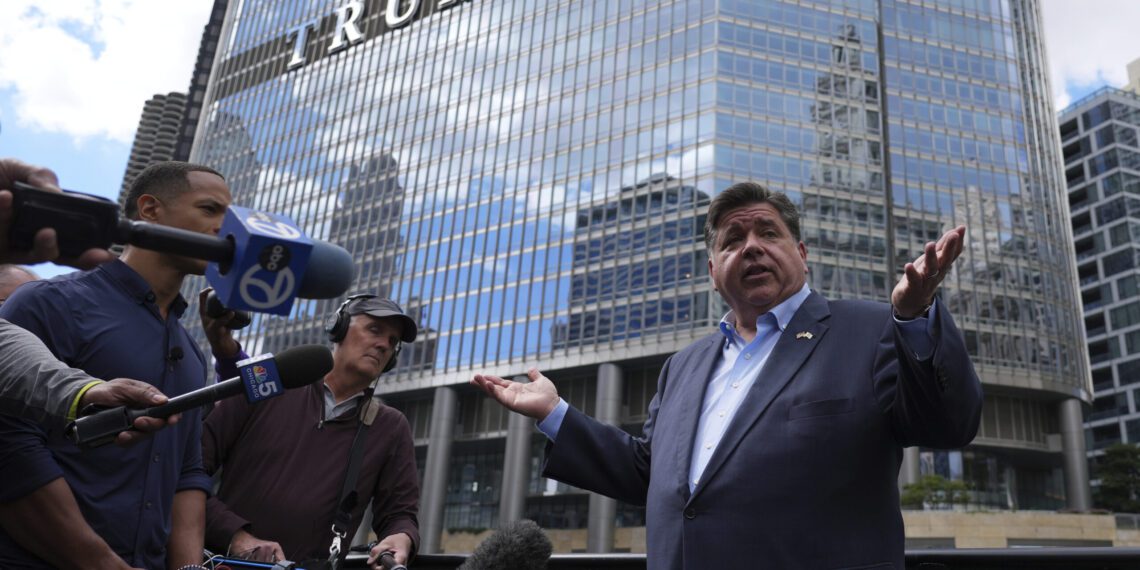By Janelle Powell, Opinion Contributor
When leaders fail to protect their citizens, federal law says the Commander-in-Chief can – and should – step in.
Most people don’t realize this: the President of the United States does not need a governor’s blessing – or a court case – to send in the National Guard when law and order collapse. Under the Insurrection Act of 1807, the Commander-in-Chief can step in when local authorities refuse to act, when federal law is being obstructed, or when citizens’ rights are denied. The President does not need to “take the governor to court.” The law itself is the authority. If Governor J.B. Pritzker objects, he can complain or even file a lawsuit after the fact, but he cannot stop it.
This is not some obscure theory. It’s been used before. Eisenhower invoked it in 1957 to send the 101st Airborne into Little Rock when Arkansas’ governor defied desegregation orders. George H.W. Bush used it in 1992 during the Los Angeles riots when local police couldn’t regain control. Neither president asked permission. Neither waited for court approval. They acted because the law empowered them to.
And that brings us to Chicago. Crime is out of control. Residents are being denied the most basic right any citizen has: to feel safe in their own neighborhood. The city has become a case study in failed leadership, where ideology trumps responsibility. If Trump determines Chicago – or any city – has crossed the line, he can federalize the Illinois National Guard or deploy active-duty troops without J.B. Pritzker’s approval, and without a court order.
The evidence of failure is everywhere. Just this summer, Luis Mendoza-Gonzalez, a Mexican national in the U.S. illegally, was arrested in Chicago for concealing the decapitated body of Megan Bos in his yard. He had been released once already by a judge before ICE finally intervened.
In Springfield, Emma Shafer, a 24-year-old woman, was murdered in 2023. The suspect, Gabriel P. Calixto, a Mexican national here illegally, was later arrested by Mexican authorities. Her death was another preventable tragedy tied to Illinois’ sanctuary policies.
Or take Katie Abraham, a 20-year-old University of Illinois student killed in a drunk-driving crash in January. Police say the driver, Julio Cucul Bol, was in the country illegally. Her life was stolen while state leaders doubled down on protecting offenders instead of protecting their own citizens.
These tragedies are not isolated incidents. The Trump administration just announced Operation Midway Blitz, releasing mugshots and criminal histories of 11 foreign-born men accused of everything from gang activity to murder – right here in Illinois.
And yet, some politicians and media figures continue to tell the public that Trump has “no right” to act. Former Fox host Megyn Kelly declared, “He cannot do it. It very clearly is not constitutionally permissible. He doesn’t have the constitutional permission.”
OK Megyn, just when I was starting to tolerate you again.
House Minority Leader Hakeem Jeffries chimed in, dismissing Trump’s warnings as “manufactured” and insisting, “There’s no basis – no authority – for Donald Trump to potentially drop federal troops into the city of Chicago.”
This is the kind of willful ignorance that Project Mockingbird would be proud of: repeat the same false line often enough, and people start to believe it. But here’s the reality: the authority is written into federal law. It has been used before. And it can be used again.
So let’s be clear: the Insurrection Act is not about political theater. It’s about the federal government stepping in when state and local leaders fail.
Eisenhower didn’t ask Orval Faubus in Arkansas.
Bush didn’t ask Pete Wilson in California.
And if Trump decides Chicago has crossed the line, he doesn’t need Pritzker’s permission or a court order either.
The law is there. The precedent is there. The crisis is here. And if leaders in Illinois won’t protect their citizens, then federal authority not only can – but must. And when that day comes, J.B. Pritzker and Brandon Johnson can finally do what they do best: hold another press conference, smile for the cameras, and explain why the federal government had to step in and do their jobs for them.









